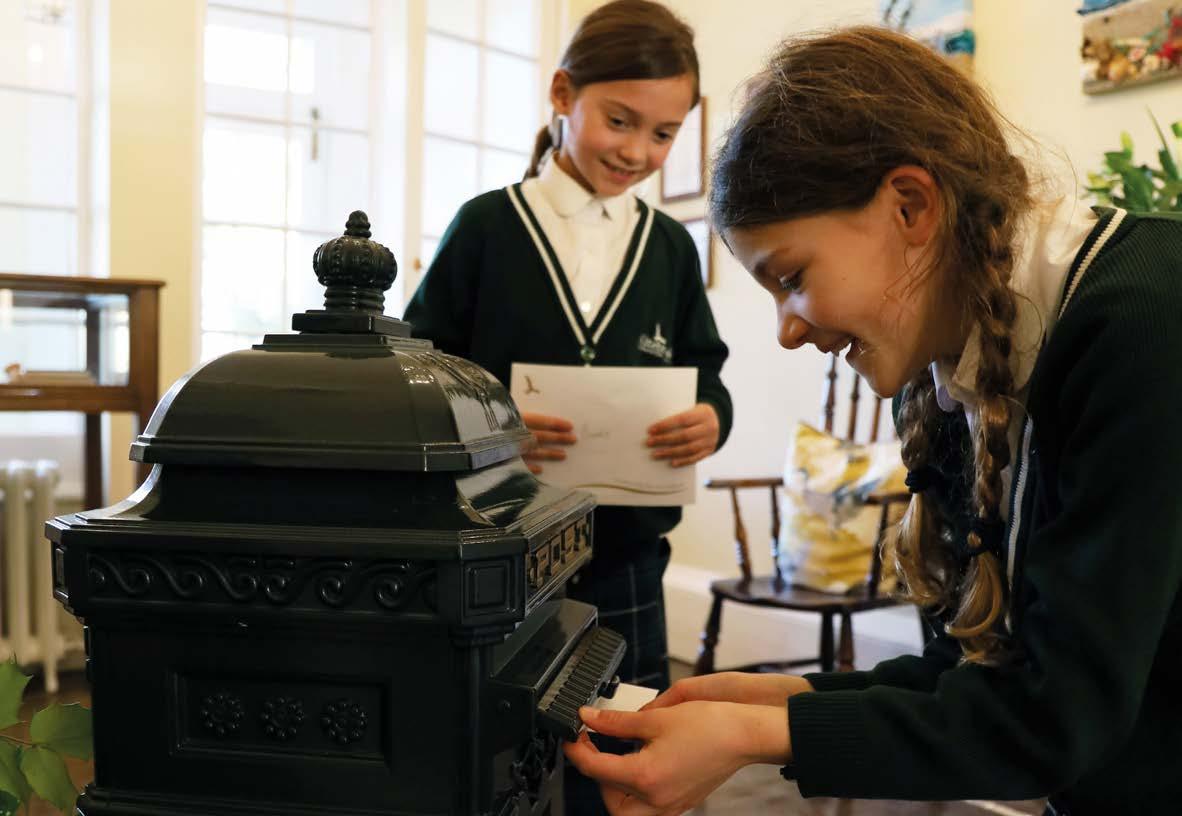
6 minute read
Behind the scenes
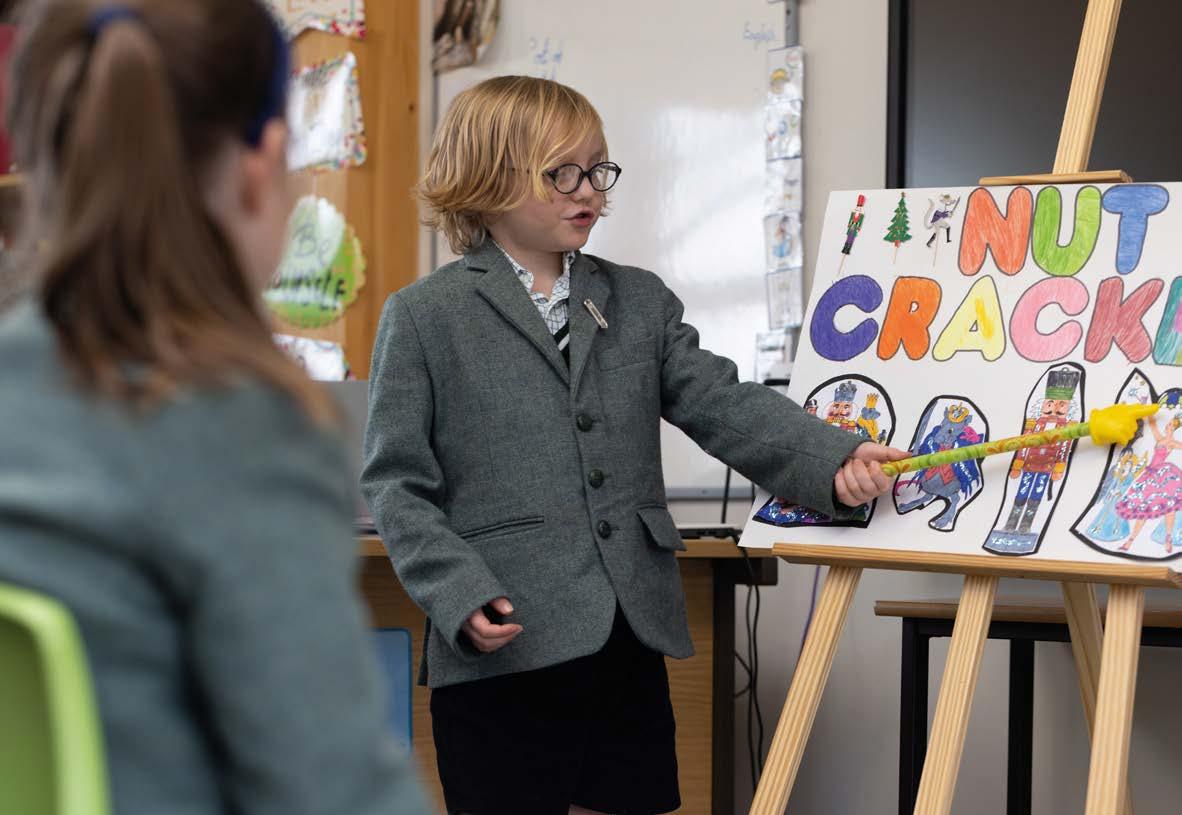
BEHIND THE SCENES KITEBROOK PREP SCHOOL
Guiding pupils to find their voice promotes independence, says SUSAN MCLEAN, Headmistress of the Gloucestershire school
As educators, we all know that our influence on children stretches beyond the classroom, beyond academics, beyond the demands of the curriculum. And one of the important educational facets that we develop at Kitebrook is the ability to become effective contributors. Contributors in school, contributors in future endeavours, contributors in society.
How do we encourage this? By helping pupils recognise that they have both independent choice and their own influential voice.
It’s important for a child to be able to discern that there are resources they’re able to call upon during decisive moments, and how best to use what’s at their disposal. Kitebrook’s values are underpinned by a set of 10 Growth Mindset skills, which comprise the school’s ethos: perseverance, taking risks, resilience, empathy, collaboration, focus, initiative, leadership, independence and self-reflection. These areas are taught to offer a suite of such resources, but beyond that lesson, children need to acquire the ability to call upon these assets when most required, and through this ability, there’s born a realisation of choice.
Teachers have the responsibility to guide children into following their own path, so by teaching them to use their voice effectively when they’re faced with decisions, conundrums and pathways, they’ll be able to shape the outcome as a positive one. By doing nothing, nothing will be achieved. Through our mindset skills we help them to recognise choices that they encounter. Then we encourage them to use their own voice, to express, and when they do, they’re rewarded. Choice, in company with their own voice, is a vital aspect of their school education, in addition to academic excellence, and something we promote to pupils daily.
There are several school enterprises offering pupils creative outlets. In the dining hall, there’s a very special Golden Book. Why is it special? Because they know that once their ideas are written into this tome, their voice will be shared. Every entry is read, and recurring suggestions are given consideration. Where possible, it’s an implementation of pupil ideas and a celebration of being spokespersons for their school.
Teachers include the valued voice of the child within the academic strands of teaching. Pupils participate in meetings, add wishes or worries to a zippered-mouth doll, speak in front of their peers, lead school assemblies and deliver lunchtime announcements. The teacher listens and responds, creating a safe environment that allows the child to speak.
For those who don’t yet feel ready to use the Golden Book, there’s a postbox in the school foyer, where pupils can post feedback and suggestion letters. Delivered to the staff addressee, they then receive a letter back offering structured responses to their proposals
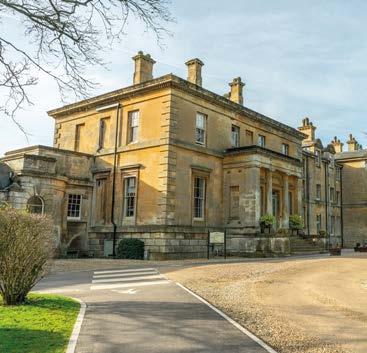
The Kitebrook Prep School motto is ‘Let our spirit soar high’ or comments. Outcomes of these teaching strands are already quantitative, with child-led initiatives becoming a feature of Kitebrook life.
As examples, one child, age seven, came forward to ask if she could host a charity event to raise money for Alzheimer’s Research, and a group of older girls worked collaboratively to host an art week and cake competition in support of the Red Cross, Yemen Crisis Appeal. A notable, and ongoing, initiative is our SMILE newspaper. Envisaged by one ambitious pupil, it was written and produced by the children after lockdown to share wellbeing tips, activities and good news to the whole Kitebrook family; it brings a literal smile to us all. What joy this affords us when the children actively create their own outlets for their voice.
There’s also tremendous satisfaction in praising and rewarding children for being confident enough to vocalise. Either publicly in announcements or visually around the school, they give pupils the boost they need.
It’s wonderful to see that those who have gained enough courage to use their voice go on to propel others, discuss problems and help in the same resilient language they’ve learned. Being confident to pull from the bank of resources they’ve learned about choice. Children become proficient in training and helping others, and this is one necessary goal we want them to reach before they move on to the next step. When they’re faced with new challenges, dilemmas and uncertainties in secondary school, we can be assured they will be able to make an informed choice and project their voice accordingly.
Of course, this all chimes beautifully with the UN Convention on the Rights of the Child. It’s paramount that children know their rights extend to independence, being proactive in their own destiny: their choice, their voice.
FROM WIMBLEDON TO THE WORLD
Hall School Wimbledon prepares its pupils for the future with a globally-minded education, excellent facilities and rich pastoral care
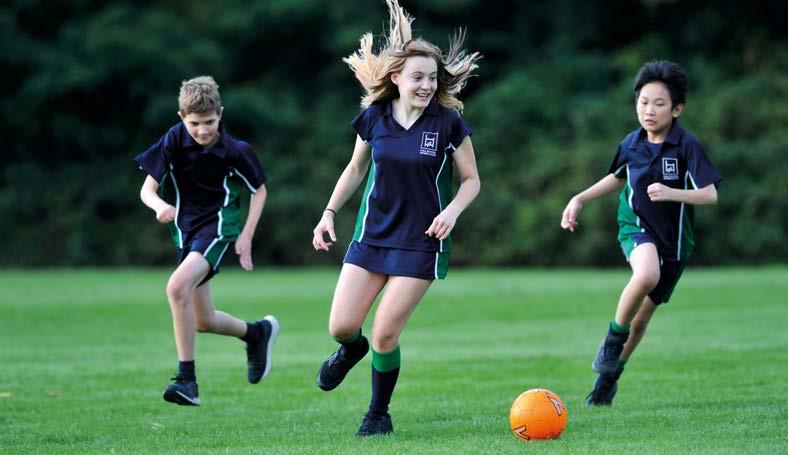
The only non-selective, co-educational, independent school in Wimbledon
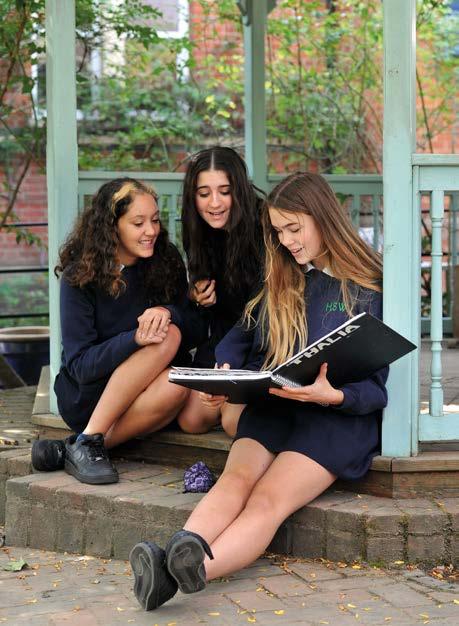
Hall School Wimbledon (HSW), is the only co-educational all through school in Wimbledon. It’s an inclusive, non-selective school for ve to 18 year olds, and the school’s cherished pupils make up a lively community of budding scientists, artists, dancers, authors, carers, musicians and athletes, all sharing a spirit of adventure and a thirst for knowledge. e new Headmaster, Mr Andrew Hammond, would be delighted to show you around HSW and its nine-acre outdoor site.
As a non-selective school, HSW, part of the Chatsworth Schools family, still maintains a strong emphasis on academia, as well as sports and the arts. Teaching sta are proud that the examination results continue to improve year on year and are signi cantly above the national average. e small class sizes allow teachers and pupils to develop excellent working relationships, and as a school who is always looking towards the future, HSW has the ability to adapt its curriculum to enable more opportunities for its young people, based on the demands of a developing world.
Every child at HSW is treated as an individual and is celebrated for who they are. e school’s intimate campus fosters a relaxed,
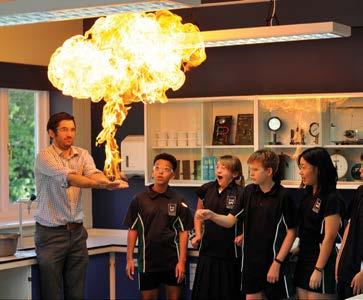
The school is able to adapt its curriculum to enable pupils more opportunities
family atmosphere where each member of the community is known. Pastoral care is central to day-to-day life and HSW believes in taking time to care for the whole child, nurturing their emotional wellbeing and encouraging life skills, alongside academic development.
Sport provides a great workout for the mind and body, and is strongly embedded into the school’s way of life. All children are encouraged to participate and to enjoy the fun of sport, with pupils bene ting from exceptional facilities at Oberon Fields, the nine-acre site less than a mile away from the school. is space is home to rugby and football pitches, a cricket square and a wonderful pavilion which has been re-developed to become a hub for curriculum enrichment, with teaching spaces for outdoor learning, performing arts and cookery. e school is also in the process of creating a multiuse court, a new nature trail, orchard, garden allotments and a forest school area.
HSW is passionate about developing wellrounded young people and equipping them with the skills for a successful and happy future. Whatever age a child joins the school at, they’re joining a strong and united community, with a seamless, natural pathway that can take them to the very end of their school days, following a broad and rich curriculum. When pupils leave HSW, it’s as con dent, empowered and globally-minded young people, who are equipped to lead and contribute fully to society. Come and visit the school at one of its forthcoming open days and see for yourself what HSW has to o er!
Visit the school website hsw.co.uk, or contact the admissions team on 020 8394 6144 or via admissions@hsw.co.uk
Outdoor space is plentiful at HSW










